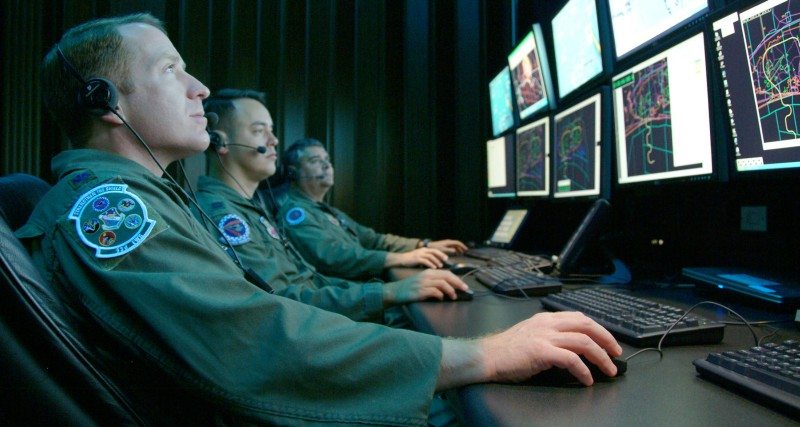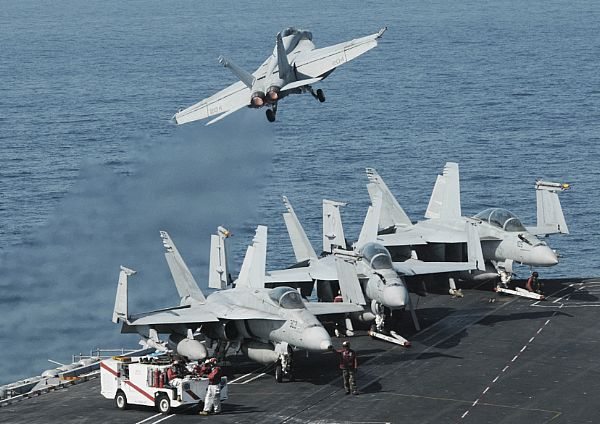“I think the threat [of cyber-attacks] is very real and could potentially be very near-term,” said Brig. Gen. John Davis, U.S. Cyber Command at Fort Meade, Md.
The nation, he said, will demand the military be engaged in cyber defense of the nation, because the military has the greatest capacity and capabilities to do so.
Davis said that today, it’s not in the “authority lane” of the military to play that role. Instead, he said, the responsibility lies with the Department of Justice and the FBI, though he said the military is responsible for its own military networks.
“But 90 percent of the military networks reside and ride on commercial infrastructure, so we’re concerned about what [an adversary’s] cyber activity could do to that commercial infrastructure, because it can have an adverse impact on the military’s ability to do its job,” he said.
Davis and other think tank specialists came together at Unified Quest 2012, Oct. 25-28, for a series of annual seminars where members of academia, and U.S. and foreign militaries examine critical issues to current and future force development.
“This is the beginning of our campaign of learning for fiscal year 2012,” Lt. Gen. Keith C. Walker, deputy commanding general, futures, and director of Army capabilities integration. “We’re going to use what we learn in this session on alternative futures to set the conditions for further seminar war games and experiments.”
Key takeaways from Unified Quest 2012 include:
- As the world population grows, increased global competition for affordable finite resources, notably energy and rare earth materials, could fuel regional conflict
- Water is the new oil, and its scarcity will confront regions at an accelerated pace in this decade
- Super-empowered individuals will have the capacity for wide-spread influence and the ability to change local and state events
- Tight monetary policy, infrastructure enhancements, and advanced technology investments will set conditions for economic recovery in 2020 to 2028
- U.S. retrenchment, if it occurs, will be a transient state
- The United States will retain relative supremacy, but by a smaller margin, requiring selective strategic choices
- Land power is required for sustainable solutions, to pursue national interests, and to demonstrate resolve
- Technological advancements through 2028 are expected to increase, and will impact all facets of life
- Dynamic changes in the Islamic world will continue
“The purpose of this symposium is about plausible strategic landscapes,” said Col. Kevin Felix, director of the Army’s Future Warfare Division. “The four working groups were given wide latitude to work towards 2028, and it was about bringing in the right folks.”
Following the intense work group sessions, one idea came out stronger than the others.
“We may be facing more asymmetric threats, in the cyber environment in particular,” Felix said.
Those threats were of particular concern to not only Davis, but also to Dr. Richard Russell at Army Materiel Command.
“[In] the battlefield of the future, cyber will be the dominant factor,” Russell said. “The ability to have the instrument in place to affect the cyber [capabilities] of the enemy at the critical moment, to affect how their systems operate and how they are able to affect the battle, will be the thing that changes the outcome of the battle.”
“From both the total cyber challenge that the nation faces and in the protection of the data, the weapon systems designs and technologies that we and our partners are developing for future warfare, it is that cyber security element that will mean whether we will have success or failure, tactical or strategic surprise in the future,” Russell said.
Before information technology became known as cyber, Davis said, the Army looked at that function as essentially an equipping function for the forces. The Army provided the Soldiers with the capability to communicate … it was a supporting function.
“The Defense Department has recently transformed the way we look at this and has declared cyber an operational domain in its own right … a domain that every other traditional war fighting domain relies on ,” Davis said, adding this puts war fighting domains at risk if it is undermined.
“What I’m trying to do is scare you even more than working group 1 did,” Davis said. “I’m not looking at 2028. I’m looking at the next 18 months.”











